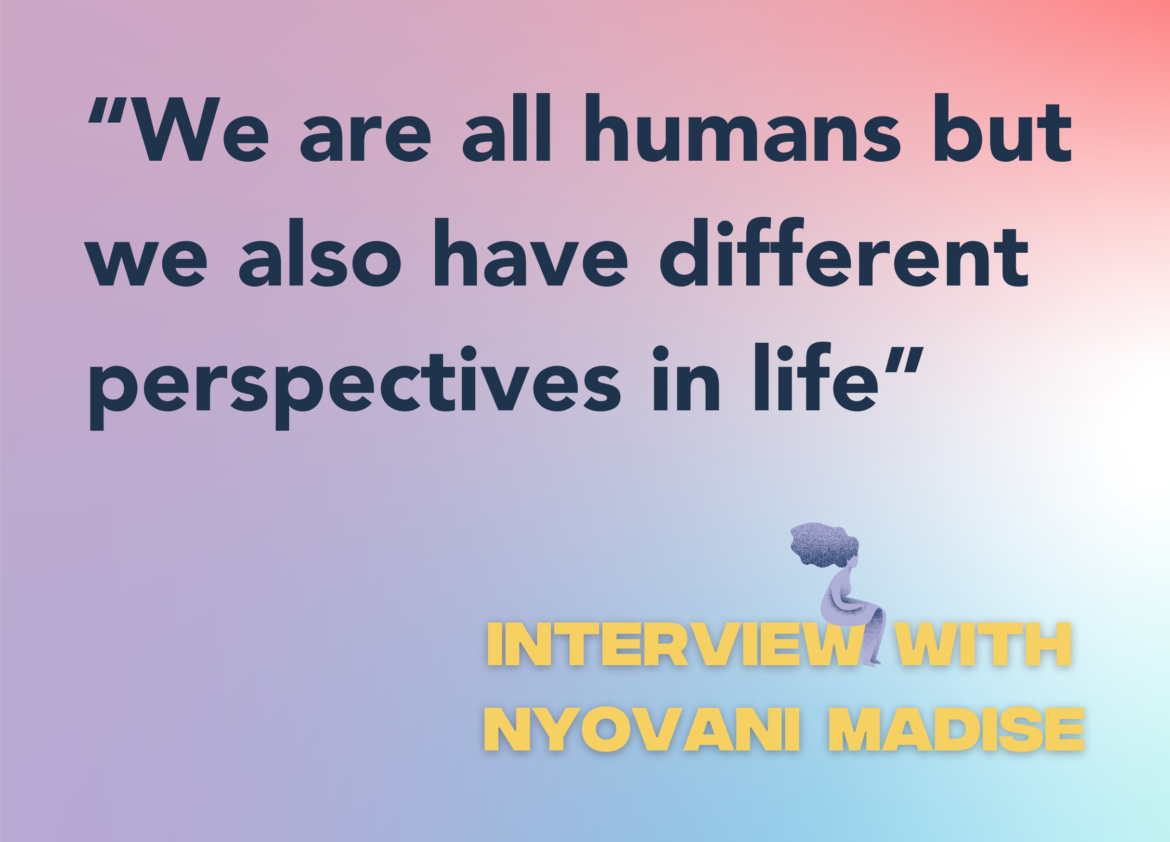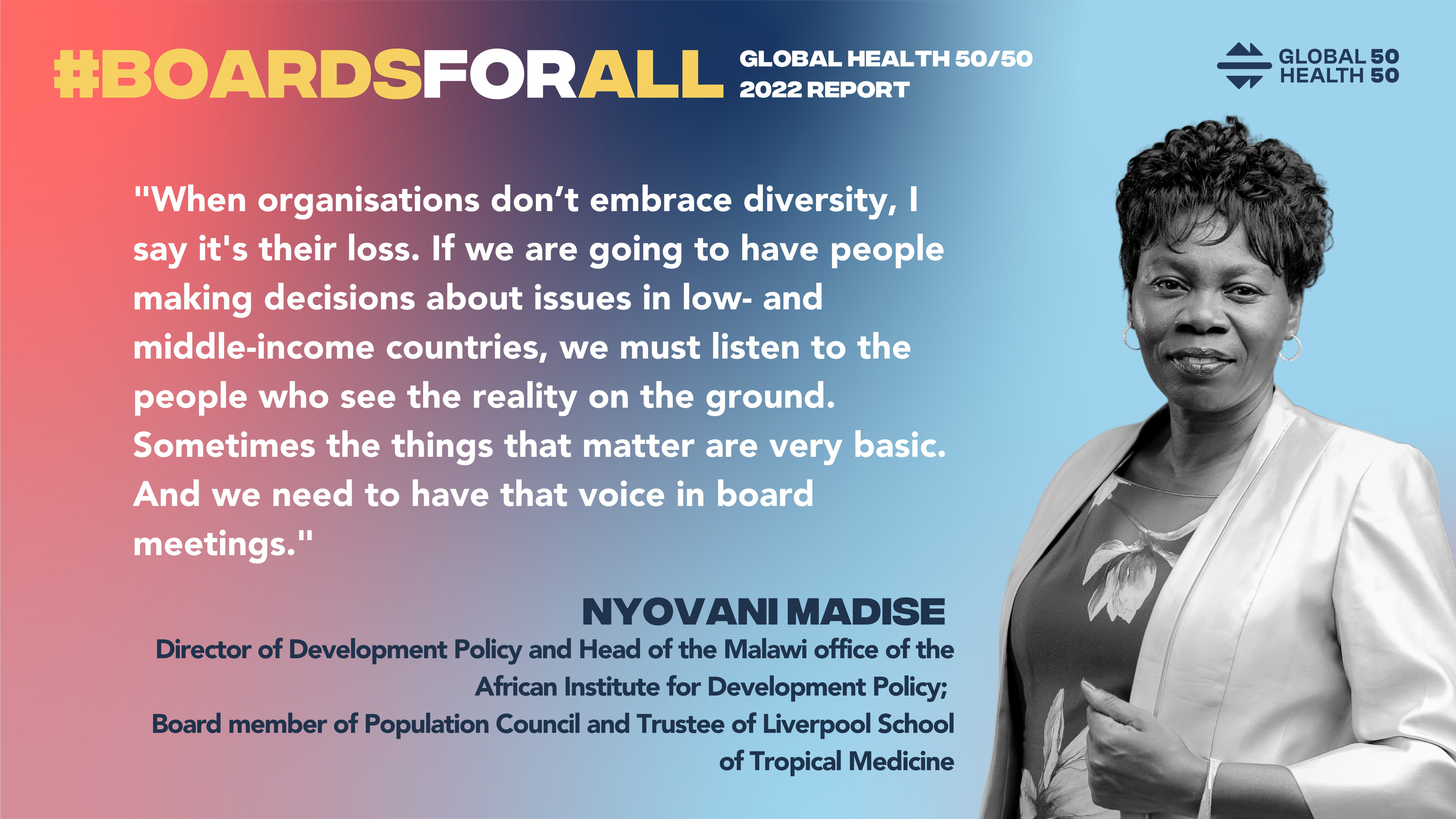“We are all humans but we also have different perspectives in life”: Interview with Nyovani Madise
Passion and good mentors were key to Nyovani Madise becoming a board member of organisations active in global health: “I’m very passionate about global health issues. I’m very passionate about equality.” When Nyovani joined the Global Health Strategy Group, which later became the Applied Global Health Research board, at the UK’s Medical Research Council, she learnt that a mentor had nominated her based on her passion for these issues. That was over ten years ago and Nyovani has served on multiple boards since then.
Nyovani Madise is one of just 14 women nationals from low-income countries to occupy 17 of over 2,000 board seats assessed in the 2022 Report from Global Health 50/50 – Boards For All? A Review of Power, Policy, and People on the Boards of Organisations Active in Global Health. The report provides the data and evidence behind many of Nyovani’s firsthand experiences.
Nyovani describes the challenge of being underrepresented on board seats: “For me, the biggest obstacle has often been being the lone voice in a board of mostly men and I’m the only woman. When I don’t have other people to affirm the things I’m saying it can make it easier to dismiss. Whereas when others hear two or three voices articulating the same thing they start paying attention.”
Nyovani describes this as a major loss for organisations that do not have diverse boards. She believes organisations without adequate representation do not benefit from the diversity of experiences and perspectives and as a result fail to grow, highlighting that ”We are all humans but we also have different perspectives in life and we’re shaped very much by who we are, where we were born and how we’ve lived.” There is substantial evidence to support Nyovani’s experience of the benefits of diversity in governance: both for-profit and non-profit organisations perform better with diverse governance.
Experience and skills should be the most important criteria for selection to a board position. Born in Malawi, it was when Nyovani started working as a social scientist that she began to grasp the full spectrum of the lived experiences of women and children in her country and in other parts of the world. Her advice to other potential board candidates is to write about their experiences, skills and research in their pursuit of a board position as these aspects are what bring value to a board beyond ethnicity, race or gender.
Imposter syndrome can prevent women and other underrepresented groups of people from serving on boards. When Nyovani joined her first board she would spend hours researching specific drugs and treatments discussed in the board documents before she realised that the board didn’t need another medical practitioner – they needed her expertise as a social scientist. Once she embraced representing herself in the board discussions it became a lot easier for her. Nyovani’s advice to boards to help overcome imposter syndrome is to phone appointed candidates who are underrepresented and assure them of the many qualities that make them ideal candidates to serve on the board. Sometimes people need a little extra help to have faith in themselves to accept a position.
Ultimately, organisations that embrace inclusivity and diversity are in a better position to serve the health needs of more people around the world. In Nyovani’s words: “If global health boards were more inclusive and diverse I think that we might see a change in some research – with a focus on the person as a whole rather than only focusing on a disease.”
If you’d like to read more about the experiences of board members in global health, our 2022 report includes a number of reflections from board members and we also have a selection of short interview clips on our Youtube channel.



